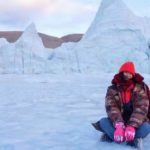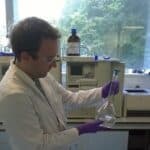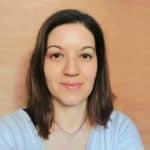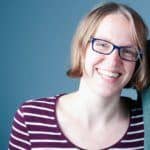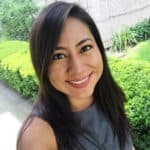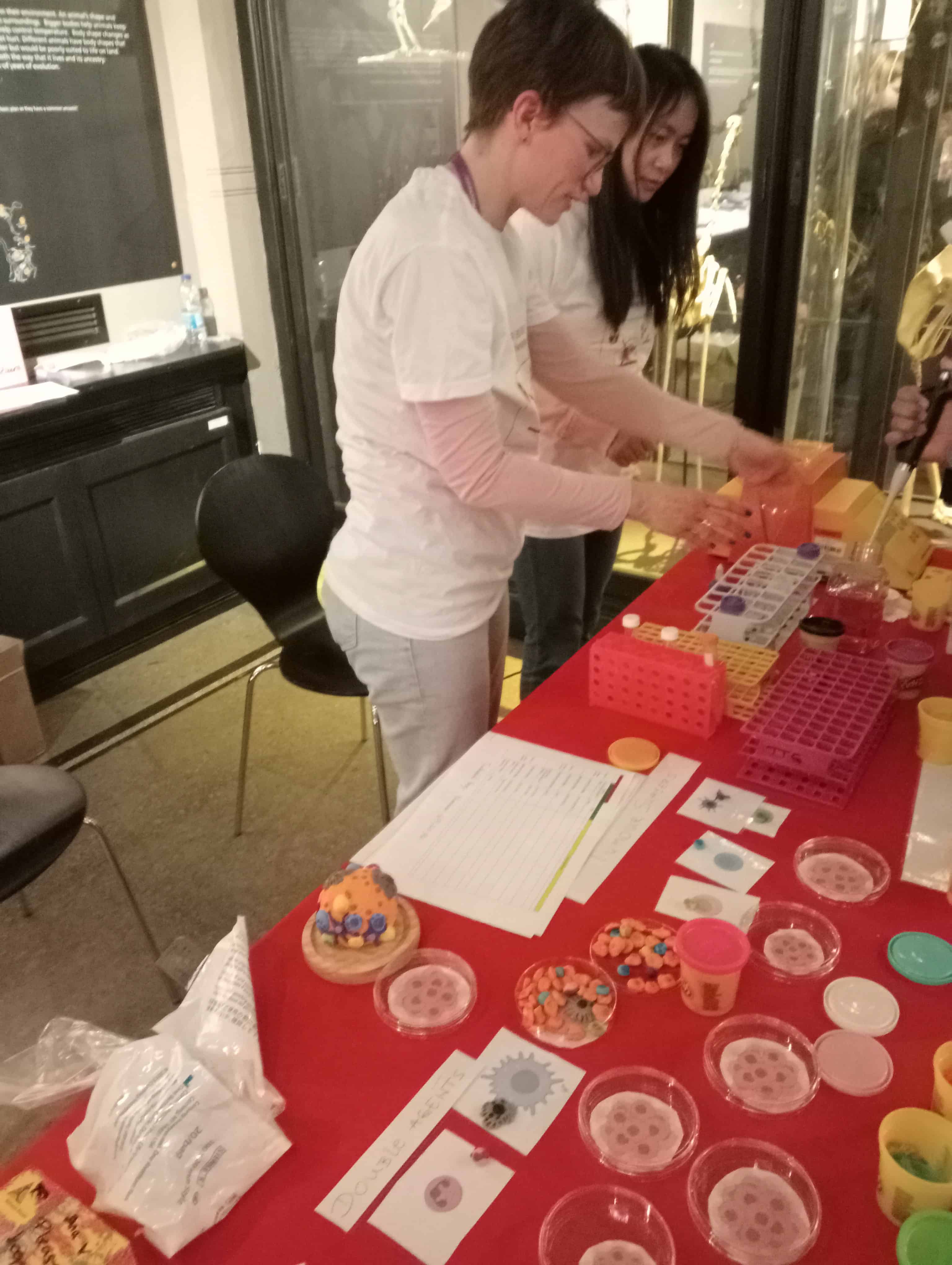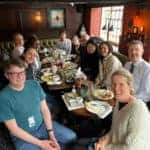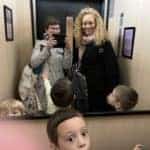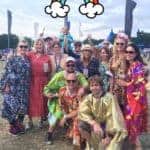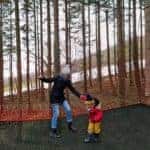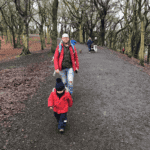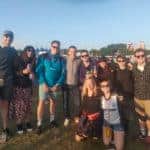Profile
Ana Vitlic
-
About Me:
I live in Manchester with Peter, Max and Simba. I am a lab scientist in the day and sometimes by night too. I love books and festivals.
-
Read more
Peter is my partner. Max is my 4-year old boy. Simba is our cat. He is 12. He has the looks but not the attitude of the Lion King. When I am not in the lab I listen to Max’s invented stories. I sometimes join him in telling them too. I don’t like football but often spend my week night watching it with Peter. I grew up in Serbia where I still go often to visit my family and friend. I spent most of my summers in Croatia as a child. There I learnt to love swimming and crazy golf, and tried but failed to learn table tennis.
-
My pronouns are:
she/her
-
My Work:
I work at the University of Manchester – studying relationship between cancer and white blood cells that are part of our immune response.
-
Read more
I am Cancer Immunologist. That means that I am trying to understand how white blood cells in our body respond to cancer. I do that by using cancer tissues from many different parts of the body such as skin (also called melanoma), colon (which is part of our digestive system that helps us process the food we eat), lung and others. I am investigating what types of white blood cells enter these cancers – this is called tumour microenvironment. Based on tumour microenvironment my colleagues and me are trying to suggest the therapies that can work for the particular type of cancer.
-
My Typical Day:
I wake up, get ready and drive Max to the nursery then catch a tram into work. I arrive at 9am, check my emails then go to the lab continue the experiments from the day before. That can be feeding cells, processing tissues or preparing samples for the analysis. I have lunch between 1-2pm with any of my colleagues who is available that day. In the afternoon I continue lab work and respond to any queries from the students. I finish at 5pm.
-
Read more
I wake up super early, between 4-5am in an attempt to go for a run. It doesn’t always work. I get myself ready and take Max to the nursery. It’s 20min drive to get there and we listen to Serbian nursery rhymes on the way. I then take the tram to work and start in the lab around 9am. Every day is different, sometime there is a lot of practical lab work to do, other days I work more on my computer. I try and make time to go for lunch with my colleagues. There are lunch time seminars on Tuesdays and Wednesdays and I attend them if I have time. I either go back into the lab in the afternoon or continue reading and analysis on my computer. If there are any queries from the colleagues or students, or I have a problem to solve, I deal with that in the afternoon. I leave at 4:15pm if I need to pick Max up from the nursery. If not, then I stay a bit longer to finish what I have started. When I get home I make dinner. I do not like to cook, and I am not very good at it, so I prefer when Peter has already made the dinner or we have leftovers from the day before. Max goes to bed around 8:30pm. After that I work a bit more or watch TV with Peter.
-
What I'd do with the prize money:
I have a couple of ideas which I would like to materialise:
- First comes from British Science Fair we had at Manchester Museum where I attempted to help pupils visualise tumour structure using play doh. This was good, it did the job and pupils enjoyed playing with it. It did make me think, however, about future more permanent 3D models that we could build with the help from other groups within University.
- Second is a little bit older idea of making children’s book on immunology where the main characters would be white blood cells. I even have a person in mind for the drawings – my dear and talented friend and colleague from University days.
-
Education:
Primary school (first 8 years of my education) was in my home town of Belgrade, which is the capital for a small south-eastern country Serbia. I really enjoyed going to school and would always be excited about it starting after a long summer holidays (in Serbia summers get really hot so we would get ~10 weeks of holidays, from third week of June till 1st September).
High School – I attended high school which lasted 4 years also in Belgrade. There the focus on Natural Sciences so Mathematics, Physics, Biology and Chemistry. These were my favourite subjects, though I had to study a lot more for Maths and Physics, but I also loved languages and Serbian Literature.
Graduate studies – I did Molecular Biology and Physiology at the University of Belgrade, Serbia, and continued there my education up to MSc level after which I moved to UK to do my PhD.
Postgraduate studies – Doctorate studies is something you do if you are interested in further education and at the end of which you get the title of Dr (Science not, medical) or PhD (Philosophy of Doctorate). I did this at the University of Birmingham and my topic was stress and immunology.
-
Qualifications:
Since my education prior to Doctorate studies was in Serbia it is in a bit of a different format than what most of you are used to.
After primary school, we do not gain any qualifications. We finish it at the age of 14. At this point we do the entry exam into the school we choose, and they can broadly be classified into 2 categories – specialised school after which you are qualified in a specific vocation, or general high school after which you again do not have any qualifications and are expected to continue with the higher education. I went to High School with the focus on Natural Sciences.
University – this was at the time 4.5 years of study plus 0.5 year for project and thesis writing and we finish with the equivalent to MSc degree.
Postgraduate studies – as mentioned above, I moved to UK to do the PhD at the University of Birmingham and I have obtained this degree in 2014.
-
Work History:
I didn’t do a lot of jobs during my studies as I was living with my parents (this is standard situation in Serbia if you live in Belgrade as that is also the biggest University town in the country). I did an odd cleaning job and some tutoring.
After PhD I worked as Lab Immunologist at KWS Biotest which was a company that was solving immunology related problems for big pharmaceutical companies by testing their drugs and helping them answer specific questions about the way the drugs work. I very much enjoyed my time there and learnt a lot. This was in Bristol and Peter was in Manchester so it was never going to be a long term employment.
Next step was moving to Manchester and working as flow cytometry support between industry and academia in the area of respiratory immunology. Flow cytometry is laboratory technique that is helping us understand white blood cells better. Respiratory immunology is branch of science interested in diseases that are related to lung and our breathing pathways.
I then moved to University of Huddersfield and worked in the area of intestinal immunology – this is part of our body related to our gut and is doing a lot to understand problems of diseases such as ulcerative colitis and Crohn’s disease. In both cases, part of the bowel is inflamed – this means white blood cells are overreacting and causing pain – and it can lead to a lot of unpleasant symptoms such as diarrhoea, bleeding, abdominal pain, weight loss etc.
During COVID-19 pandemic I worked in parallel in one of the so-called Lighthouse laboratories build and organised for testing samples for presence of the virus.
In August 2021 I left both of these jobs to start my current post as Cancer Immunologist at the University of Manchester .
-
Current Job:
In my current job we are trying to understand how combination therapy that includes radiotherapy and immunotherapy can best be used to fight certain types of cancer. Immunotherapy are small antibody molecules that are blocking specific pathways in immune (white blood) cells and are therefore capable of reprogramming them into better soldiers for fighting cancer. We are investigating tumour microenvironment (which is actually structure of cancer) to understand how to change existing white blood cells into better fighter using these two therapies.
-
Employer:
I am employed by the University of Manchester, and work within School of Medicine and Health, and Division of Cancer Sciences. I am based at Cancer Research UK (CRUK) institute, and have access to all their facilities which makes it a very exciting place to work. I am based at the Institute that is right next to Christie Hospital, which is the largest cancer hospital in the country. These three institutions – University, CRUK and Christie in such close proximity make it really exciting place to be and fight cancer.
-
My Interview
-
How would you describe yourself in 3 words?
festival loving immunologist
What did you want to be after you left school?
Scientist :)
Were you ever in trouble at school?
Yes, but always as a part of a team - when the class was collectively in trouble.
If you weren't doing this job, what would you choose instead?
Literature
Who is your favourite singer or band?
Jonny Cash
What's your favourite food?
Chocolate
If you had 3 wishes for yourself what would they be? - be honest!
To be able to sing; to be able to draw; to have photographic memory
Tell us a joke.
Did you hear about the first restaurant opened at the moon? It had great food, but no atmosphere.
-

